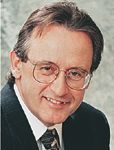- Acne
- Actinic Keratosis
- Aesthetics
- Alopecia
- Atopic Dermatitis
- Buy-and-Bill
- COVID-19
- Case-Based Roundtable
- Chronic Hand Eczema
- Chronic Spontaneous Urticaria
- Drug Watch
- Eczema
- General Dermatology
- Hidradenitis Suppurativa
- Melasma
- NP and PA
- Pediatric Dermatology
- Pigmentary Disorders
- Practice Management
- Precision Medicine and Biologics
- Prurigo Nodularis
- Psoriasis
- Psoriatic Arthritis
- Rare Disease
- Rosacea
- Skin Cancer
- Vitiligo
- Wound Care
Article
CMS proposal sparks debate
Author(s):
CMS is proposing for ASCs the same payment groups used under the outpatient prospective payment system (OPPS)...CMS also is proposing to modify the criteria for determining whether Medicare will reimburse an ASC for a particular procedure.

The proposal includes two changes that will be implemented in 2007 even before the broad reform takes place a year late. They include an update of the current ASC list and, as required by the 2005 Deficit Reduction Act (DRA), a cap on payments to ASCs at the hospital outpatient department payment rate.
(For a complete list of all codes affected by the cap, please visit http://www.fasa.org/proposed/cuts.pdf.)
If there is good news, it would be that all surgical procedures - other than those that pose a significant safety risk or generally require an overnight stay - could be performed in ASCs. For procedures added to the list of procedures that are commonly performed in a physician's office, CMS proposes to cap the ASC payment rate at the physician office payment rate.
"The major reforms we are proposing in payments for ambulatory surgical centers will provide for more appropriate payment for the broad range of services that ASCs can provide," explains outgoing CMS Administrator Mark B. McClellan, M.D., Ph.D. "Our goal is to help our beneficiaries get the outpatient care they need in the most appropriate setting, by eliminating payment differences that inappropriately favor one outpatient setting over another and that may add to Medicare costs."
CMS' action is being taken in response to the Medicare Prescription Drug, Improvement and Modernization Act of 2003 (MMA), which requires that the revised payment system be designed to pay more accurately for ASC services and to have aggregate expenditures in 2008 that will be the same as they would have been under the current system.
"The proposed revisions more closely align payments in the ASC and OPPS payment systems, to encourage the most efficient and appropriate choices of outpatient settings for ambulatory surgical procedures," CMS says in a press release.
The proposed changes brought immediate challenges from two organizations representing ASCs.
"The American Association of Ambulatory Surgery Centers' (AAASC) core membership are physician-owned single specialty ambulatory surgery centers," notes Craig Jeffries, AAASC executive director. "We are delighted with the policy direction that CMS is taking that will expand opportunity for (physicians) to more fully participate in the benefits of ASC ownership."
However, Jeffries adds, "We are not satisfied with the CMS details in their recent proposal and we will work diligently with our physician ASC leaders to have CMS' final rule fully realize the value of ASCs as a choice for Medicare beneficiaries and as an efficient work environment for surgeons."
On its Web site, http://www.aaasc.org/, the organization declares: "Over the next 16 months, with AAASC members' grassroots advocacy efforts, we will implement an aggressive and comprehensive plan to meaningfully alter this proposal, thereby ensuring that ASCs receive fair and equitable payment rates in the future."
Meanwhile, FASA, Inc. president Kathy Bryant says her organization, which claims to be the largest ASC association, is "dismayed" at CMS' proposal to pay ASCs 62 percent of what hospital outpatient departments receive for providing "the exact same surgical procedure."
She says the proposal would result in Medicare beneficiaries and the Medicare program paying more for outpatient surgery because patients' only choice for many procedures will be the more costly hospital setting, since "the proposed payment rate is just not sufficient for ASCs to provide surgical procedures."
Newsletter
Like what you’re reading? Subscribe to Dermatology Times for weekly updates on therapies, innovations, and real-world practice tips.











